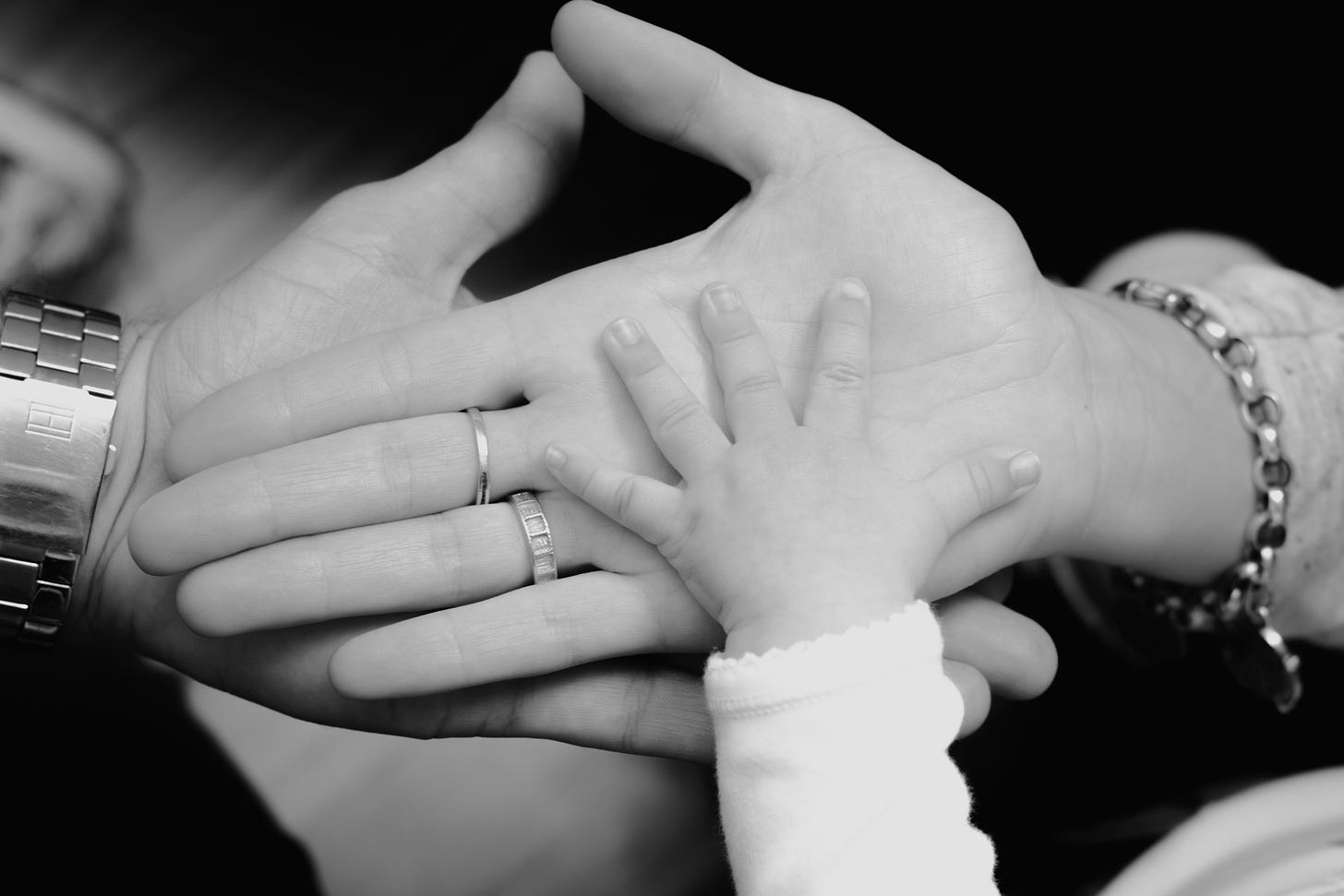[ad_1]
Marriage is supposed to be about mutual self-giving, the dance between self and other, the balancing of strengths and opposites, weaknesses and complementariness. The Catechism of the Catholic Church states:
“The Church holds the exchange of consent between spouses to be the indispensable element that ‘makes the marriage’ … The consent consists in a ‘human act by which partners mutually give themselves to each other.’”
(CCC 1626,1627)
When self-giving is one-sided—as it is in all abusive relationships—a corruption of God’s intentions takes place. This is a form of evil, a desecration of the gift of self.
“There exists in love a particular responsibility—the responsibility for a person who is drawn into the closest possible partnership in the life and activity of another … It follows that one has a responsibility for one’s own love: is it mature and complete enough to justify the enormous trust of another person, the hope that giving oneself will not mean losing one’s own ‘soul,’ but on the contrary enlarging one’s existence—or will it all end in disillusionment?”
(Pope St. John Paul II, Love and Responsibility)
This responsibility includes “a concern for the true good of the person,” which is “never in itself an unpleasant or painful feeling” (JPII).
Or at least it shouldn’t be.
When the responsibility of mutual self-giving is ignored or abused, this causes the neglected partner to feel traumatized because it alters the life she thought she was living. Her entire world shifts; the safe footing beneath her crumbles to dust. In Theology of the Body, Pope St. John Paul II makes the point that
The acceptance of the woman by the man and the very way of accepting her become, as it were, a first gift in such a way that the woman, in giving herself, at the same time ‘discovers herself,’ thanks to the fact that she has been accepted and welcomed and thanks to the way in which she has been received by the man. She therefore finds herself in her own gift of self when she has been accepted in the way in which the Created willed her, namely, ‘for her own sake.’
That’s why intimate partner violence, in any form (physical, verbal, psychological, emotional or spiritual), is a complete rejection of that beautiful self-giving gift. It’s not being loved for one’s own sake, and it causes a rupture in beinghood, because the victim “loses herself” or, to again quote Pope St. JPII, it causes her feel as if she’s lost her soul—the most intimate part of her self, the God-given aspect that makes her unique.
How can the self be recovered and reintegrated after the toxic damage of domestic abuse? One crucial aspect to healing is that of developing and nurturing healthy relationships. This is often the most difficult thing a trauma survivor can do, because trauma naturally causes the victim to sink into herself, to seek a sense of safety by withdrawing from others. Relationships have become too dangerous, too difficult. Isolation feels safer.
“In order to heal from trauma, you need to unlearn the self-protections that keep you from leaning into others. But you need to do it gradually, at your own pace. Learning to lean into [safe and trusted] others is one of those skills that is paradoxical. You can’t work harder to lean; you actually have to let go.”
(Gretchen Schmelzer, Ph.D., Journey Through Trauma)
Betrayal changes our story. We thought our lives were this, but now we realize they’re that. All else has been an illusion, or at least it feels that way. Constant and cyclical traumatic experiences disrupt and challenge our previously-held beliefs about the world, relationships, God, and even our own existence.
The key is to go slow. Little steps are crucial—no leaping over canyons at this point.
For me, one of the biggest things I had to relearn was feeling safe in social situations, particularly in the evening. I had to find safe people—my adult children, trusted friends, other relatives, my spiritual support group—and begin slowly interacting with them. At first I’d meet only during the day—the evenings were still too unsafe due to my trauma—but slowly I’ve been able to reintegrate my true self and be more flexible about times when I can meet others in a healthy way.
As I began this process of reintegration, I berated myself for being “silly” and “over-sensitive,” but then I had to recognize that those were false labels that had been attached to me since childhood. With time, through the gentle support of my loved ones and the healing love of Christ, I learned that not only was it okay to feel as I did, but it was normal.
Repeated relational trauma damages all relationships—including with self and God. It unbalances and unhinges the known world; nothing feels safe any longer.
Rebuilding a sense of safety takes time; it can’t be rushed. Love of self (Mark 12:31) includes patience and Christ-like understanding.
I’m slowly growing in trust—particularly trust in self. I’m beginning to reintegrate my true beinghood, to again see how I’m made in the image and likeness of God (Gen. 1:26-27). Slowly, as I let faith, hope and love enter my wounded soul, I come back to the woman God created me to be.
“Helplessness and isolation are the core experience of psychological trauma. Empowerment and reconnection are the core experience of recovery.”
(Judith Herman, Trauma and Recovery)
Abuse numbs the soul; it freezes the entire personhood. In a constant state of shock, grief and terror, an abuse victim “unbecomes” to the point of shutting down. We may wonder who we now are, why we’ve changed so much, or perhaps we can’t even recall who we once were.
The way to journey back into “becoming”—becoming the person we still are, but have forgotten, neglected or cast aside—is the same way we originally “became”—through relationship. God created us to be social creatures, and it’s through healthy and nurturing relationships that we thrive. The Vatican II document Gaudium et Spes makes it clear that:
Man, who is the only creature on earth which God willed for itself, cannot fully find himself except through a sincere gift of himself (cf. Luke 17:33).
We need to lean on others, those who can engage with us in a relationship of mutual self-giving and who can be trusted with the treasure of our souls. Let our safe people nurture and revive us after the damage of abuse. After repeated relational trauma and betrayal, it’s easy to be mistrustful or anxious about all relationships, even the ones that have always been safe.
Yet the ones that have always been safe still are. Those aren’t the people who hurt, manipulated or emotionally abandoned us. They’re the safe people, those God placed in our lives for mutual growth, edification, support, hope and love.
Rely on those you know you can rely on, especially if it seems scary at first. Don’t rely on them in an emotionally attached way—which is never healthy—but in the way of mutual, healthy gift of self.
As God intended.
Relationship is a glorious gift from our merciful Lord. Nurture the safe friendships, and hold them tight. It’s in them and through them that you’ll find your true self once again.
If you’re a Catholic woman seeking a safe online support community, I encourage you to consider Hope’s Garden, a sanctuary in which the spousal love of Christ the Bridegroom heals hearts, marriages and families.
[ad_2]
Source link



